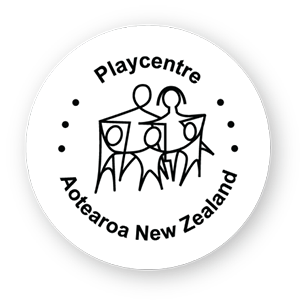Child initiated or parent directed
Child initiated or parent directed?
There are so many words and phrases to portray the weaving together of interactions that need to occur to generate the best possible learning.
Here are some examples:
Beneke, 1999
“Good communication (interactions) between a mother and child has been described as a dance. Similarly, knowing where a child is in his or her development allows teachers (educators) to enter a dance through which they can further stimulate and access a child’s growth. I think it is in this ‘dance’ between teacher (educator) and student (child) that the highest level of each of their ability is engaged.”
Let’s look at some other theorists that we draw our Playcentre Philosophy from. What do they say? Child Initiated or Parent Directed or rather a delicate dance between all learners? (ako).
“Clearly, adult-child interactions is not a static process, but a dynamic and fluid activity which is dependant upon the context and the child’s needs. There is not one way of interaction, but many.”
Fleer, 1995. (Reading 6, Pg 1)
Education should occur in a natural environment that is based on children’s experiences as they develop.
“Children’s innate curiosity is a motivating source for learning.”
“Teachers should limit their interference on the child’s natural development. Instead they should serve as a guide or facilitator.”
Rousseau (1712-1778) Reading 7, Pg 1)
“You are worried about seeing him spend his early years in doing nothing. What! Is it nothing to be happy? Nothing to skip, play. And run around all day long? Never in his life will he be so happy again.”
Pestalozzi (1746-1827)
“Children should find answers for themselves while engaging in spontaneous activity. In these activities children should be encouraged to develop their own powers of seeing, judging and reasoning. The goal is to educate the whole child.”
John Dewey (1859-1952)
“Effective learning experiences should tap into children’s natural interests in their everyday life experiences.”
Vygotsky (1896 – 1934) Pg 4, Reading 7
“Children do not learn to think in isolation, but through activities with others within their social and cultural context which is jointly created by adults and children. Development cannot be isolated from its social and cultural context.”
“Children learn through social interaction – both with their peers and adults. Collaboration with their peers and adults and sharing their thinking helps them to reach new knowledge and understanding.”
Bruner (1915-) Page 5
“The role of the teacher is to encourage children to discover principles by themselves through active exploration. The teacher and the children make meaning together through active discussion.”
Walsh and Gardener (2005) Pg 7 Reading 7, refer to the three elements of the interactional triangle – the children, the adults and their physical environment”.
So we begin with the child’s interests and strengths do we, so that is child initiated, right? But we have read that a child’s education is based on their experiences as they develop. Have we as parents had an active role in directing this? Yes, I hope so! Do I monitor what my children are exposed to? Do I allow them to have time to be creative and imaginative. Do I share my interests and passions with them? Do I respond to their individual personality and interests? Do their strengths and interests come from within or without, from what I have provided for them, the experiences they are had? Or what is already inside? This is a question of nature/nurture, which I believe is interwoven. So I encourage you to think of our children’s education as a delicate dance between learners and teachers. This happens from even before birth. Parent directed and child initiated. Back and forth. Back and forth. We learn when to step in and when to hold back. When to lead and when to let the child take over. Sometimes the child is the teacher and sometimes the adult the learner. Sometimes one child the teacher, another child the learner. Never the less we play and work side by side. Once we know our role, we can proceed. Often by trial and error, but the children are very forgiving . We reflect and evaluate and grow.
By Marina Blanchard (Cust West-Eyreton Playcentre)

